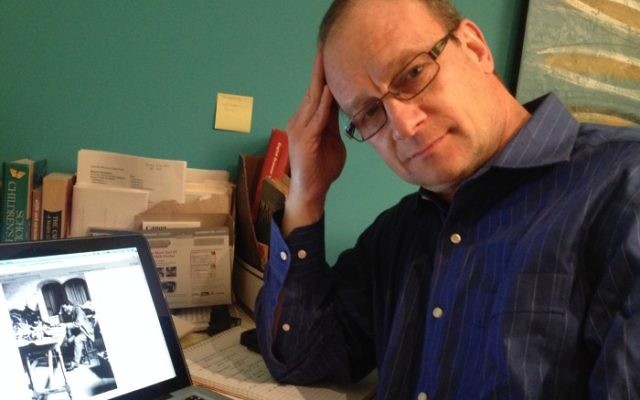Looking Back While Looking Forward
Age affords Dave the perspective to connect and contrast events from an early chapter of his life with today’s news headlines.
Dave Schechter is a veteran journalist whose career includes writing and producing reports from Israel and elsewhere in the Middle East.
I now carry a card in my wallet that qualifies me to begin sentences with the phrase “I remember when.”
Yes, growing up, I did tromp to school through snow drifts, but that’s not where this is going.
The development of a COVID-19 vaccine brought back a childhood memory of standing in line at a local school and being given a small paper cup containing a sugar cube to suck on. Added to that sugar cube was the oral polio vaccine developed by Dr. Albert Sabin.
Polio frightened parents and scared boys and girls who saw other children whose legs were strapped into bulky metal braces because of paralysis caused by the virus.
Sabin and Dr. Jonas Salk, who developed the first polio vaccine, administered by injection, were heroes. They were the embodiment of American ingenuity and the exceptionalism that we were inoculated with as a guard against other belief systems in post-World War II America.
Contrast that with the divisiveness over the response to COVID-19, and the besmirching of the reputation of Dr. Anthony Fauci, the nation’s leading infectious disease specialist, whose calm demeanor may stem from his experience navigating the fractious public atmosphere during the HIV/AIDS crisis three decades earlier.
From a young age I read newspapers, listened to news on radio, and watched news on television. In my pre-teen and early teenage years, the evening news frequently highlighted reports from the war in Vietnam and from the civil rights front across America.
The “long, hot summer” of 1967 sparked — choose your term: riot, uprising, revolt — in some 160 cities and towns, as the anger of African Americans over issues of jobs, housing and policing reached a boiling point. Even as the smoke billowed, President Lyndon B. Johnson appointed a commission, chaired by federal judge and former Illinois governor Otto Kerner, to investigate the causes of the riots. Two years earlier, another commission, impaneled by California’s governor, had blamed “riffraff” for the 1965 riots in the Watts neighborhood of Los Angeles.
So there was shock in some quarters in February 1968 when the 11-member Kerner commission, including Atlanta Police Chief Herbert Turner Jenkins, issued its findings. “Segregation and poverty have created in the racial ghetto a destructive environment totally unknown to most white Americans,” the commission said. “What white Americans have never fully understood — but what the Negro can never forget — is that white society is deeply implicated in the ghetto. White institutions created it, white institutions maintain it, and white society condones it.”
One statement in that report stood out: “Our nation is moving toward two societies, one black, one white — separate and unequal.”
Fifty-two years later, there is nothing contradictory about believing that race relations have improved in segments of American life since the mid-1960s AND that work remains to dismantle structures that buttress racism.
The America of my youth was deeply divided, I think more so than today. A broad spectrum of Americans felt that the country was tearing itself apart at the seams, and not to the dismay of everyone.
Young people (many, though perhaps not most, contrary to a popular fiction) openly rebelled against the institutions in which they had been swaddled, their dissent ranging from choices of clothing and the length of hair to marches that numbered five- and sometimes six-digits, and protests that disrupted university campuses.
African Americans sought in practice the rights guaranteed on paper in the Civil Rights Act and the Voting Rights Act. Hispanics developed a political consciousness grounded in an awareness that their labor was undervalued. Women called for equality in reality, rather than in lip service, from wages in the workplace to control of their bodies. The gay rights movement raised its voice after a police raid on a New York bar.
I don’t want to abuse the privilege of saying “I remember when” and become one of those fuddy-duddies who dismisses or diminishes the challenges faced by young people today, some of which appear similar to the struggles a half century ago and others that would have been difficult to imagine in those years. Hopefully, I can avoid any inclination to view the present through the lens of the past, while still appreciating that the past can help map the direction and the distance to be traveled in the future.
Now, let me tell you about those snow drifts.




comments